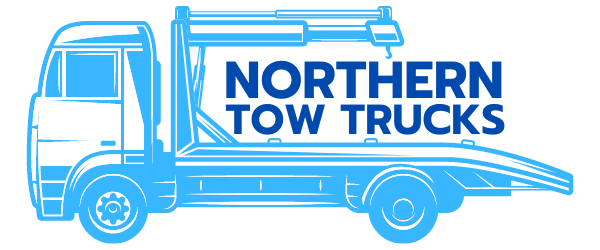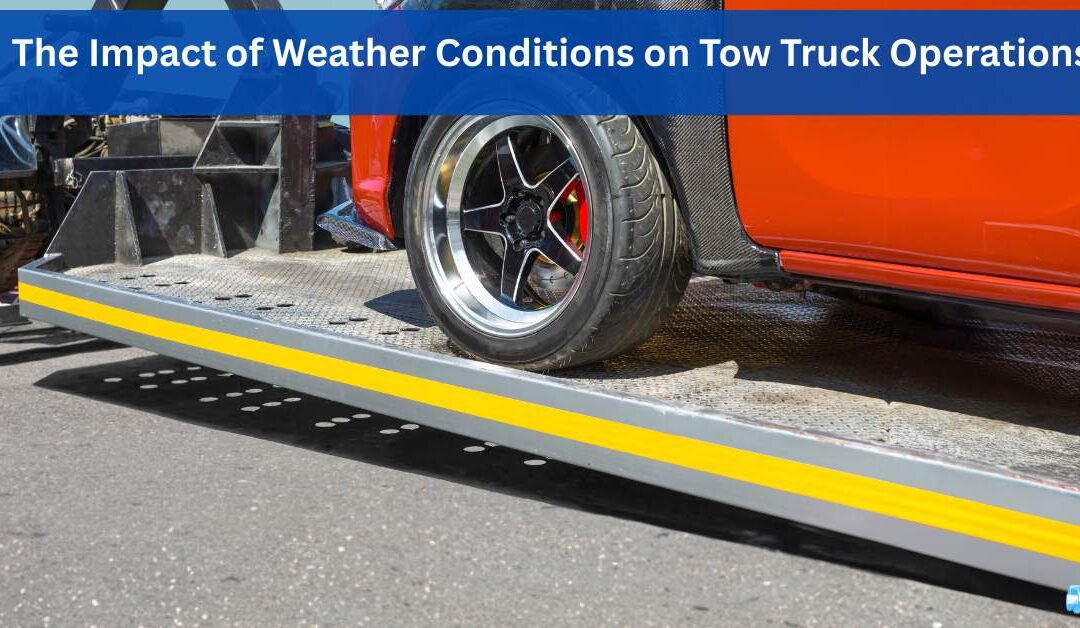Tow truck operations are heavily influenced by weather conditions, which can significantly affect safety, efficiency, and response time. While tow trucks are designed to operate in various environments, extreme weather — such as rain, snow, ice, wind, and heat — presents unique challenges that require preparation, skill, and adaptability. Understanding how weather impacts tow truck services helps explain the added risks operators face and why their work becomes even more critical in poor conditions.
Rain and Flooding: Slippery Roads and Limited Access
Heavy rain not only reduces visibility but also creates slippery road surfaces that increase the risk of accidents. For tow truck operators, this means more frequent callouts but also more hazardous conditions for recovery work. Wet roads can make loading vehicles on flatbeds more dangerous, especially on inclines, as traction is reduced.
Flooded areas pose an even greater challenge. Water can hide road hazards like potholes, debris, or submerged vehicles. In deep water, tow trucks themselves may become immobilized or suffer damage. Operators must assess the risks before entering flood zones and often rely on specialized equipment to recover stranded vehicles safely. In some cases, towing services may be delayed or restricted until water levels recede.
Snow and Ice: Increased Demand, Decreased Safety
Winter weather is perhaps the most demanding season for towing companies. Snow and ice lead to a spike in accidents, breakdowns, and stuck vehicles. This results in a surge of emergency calls for winch-outs, tows, and roadside assistance. However, icy roads also make it more dangerous for tow trucks to reach the scene, especially in hilly or rural areas.
Operators must drive slowly, maintain longer stopping distances, and use tire chains or snow tires to maintain control. The process of hooking and loading vehicles is slower and more hazardous in sub-zero temperatures. Freezing weather can also affect hydraulic systems, straps, and winches, requiring additional maintenance and caution.
High Winds: A Hidden Threat to Recovery Work
Strong winds can be particularly hazardous during towing operations, especially when using flatbeds or boom lifts. High-profile tow trucks and trailers are more susceptible to being pushed off balance, especially on open highways, bridges, or overpasses. Wind can also affect the stability of a lifted or suspended vehicle during recovery, making it harder to secure loads safely.
Tow truck operators must adjust their techniques during windy conditions, often lowering their speed and anchoring vehicles more securely. In extreme cases, towing may need to be postponed until wind conditions improve to avoid injury or accidents.
Extreme Heat: Equipment Strain and Operator Fatigue
While hot weather may seem less threatening, it can also have a serious impact on towing operations. Engines and hydraulic systems in tow trucks can overheat more easily during high temperatures, especially when towing heavy loads or navigating urban traffic. Operators also face heat-related health risks such as dehydration, heat exhaustion, or fatigue — all of which can impair judgment and slow down recovery efforts.
To manage these conditions, tow truck companies often schedule more frequent maintenance on cooling systems and ensure their drivers stay hydrated and take necessary breaks. Proper ventilation in truck cabs and protective gear for working under the sun are also essential.
Preparation and Training for All Conditions
Towing companies must be prepared to operate in all types of weather by training their staff accordingly and equipping their vehicles with the right tools. This includes outfitting trucks with snow chains, winches, floodlights, weather-proof gear, and GPS systems for real-time navigation. Communication between dispatchers and drivers becomes crucial during storms or extreme weather to reroute trucks, prioritize calls, and ensure safety.
Operators are often trained to assess environmental risks, adapt recovery techniques, and follow strict safety procedures in adverse conditions. Their ability to stay calm and make quick decisions during harsh weather is key to successful towing operations.
Conclusion
Weather conditions have a profound impact on the daily work of tow truck operators. From slippery roads and snowdrifts to extreme heat and powerful winds, every climate-related challenge requires a combination of the right equipment, experience, and caution. While the demand for towing often increases during bad weather, so do the risks — making the job of a tow truck operator both more difficult and more essential. Through preparation, skill, and resilience, towing professionals continue to serve as a vital support system no matter what the skies bring.
Northern Tow Trucks
620 Canning St
Carlton North VIC 3054
(03) 7064 2500

